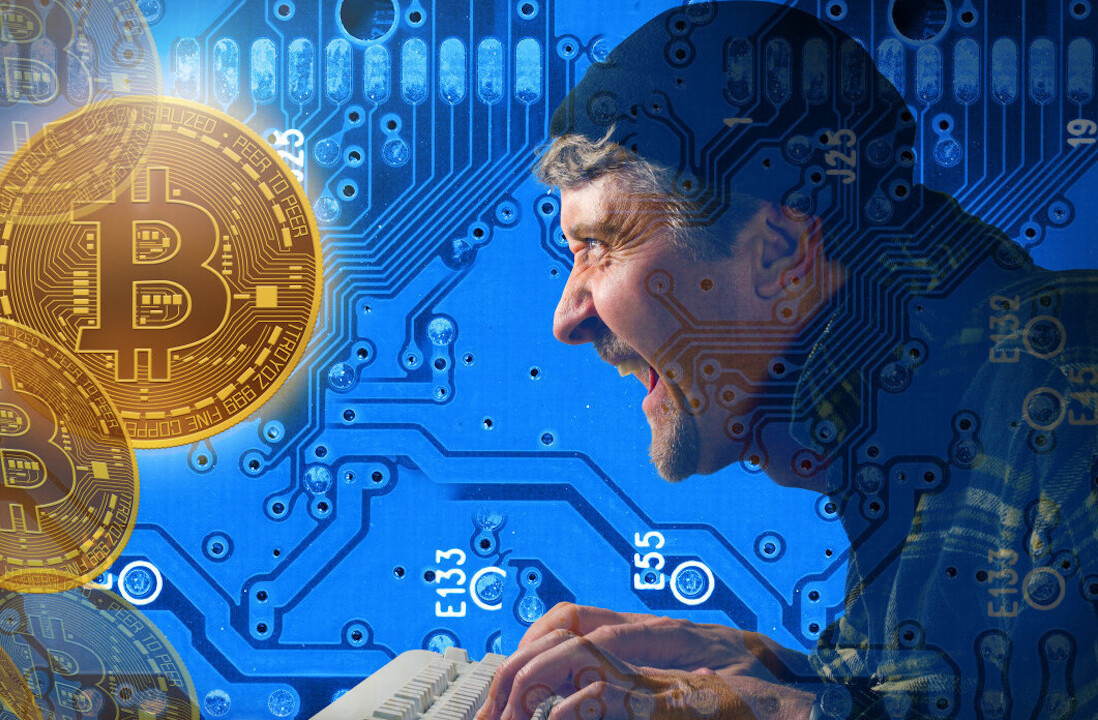
Joe Polverari is the General Manager of Yodlee Interactive, which powers global financial innovation happening outside of banks.
The recent attention given to Bitcoin and Coin – the two newest stars in the financial technology world – vividly illustrates that there exists a major demand to simplify the financial lives of consumers. Coin packages up to eight cards (debit, reward, membership, etc.) into one “Coin” swipeable card. Bitcoin is the Internet of Money and makes online purchases anywhere faster, simpler and anonymous.
While the popularity of both innovations has grown quickly (even though Coin is not yet available), they still face key uphill battles because of their unconventional path to success by not partnering with a trusted financial service provider first.
I’ve worked with hundreds of companies in the financial space – and I’ve seen what common denominators need to be addressed for a service or product to be successful. Let’s take a look at three key obstacles to success that will affect Bitcoin and Coin’s quest for consumer adoption – and which technology currently has the advantage in each category.
1. Security
If you’re not confident that a product or service that is handling your money is totally secure and legitimate, then you’re unlikely to use it. When we’re talking money, consumers want an endorsement from someone they trust before they use a new service.
Square Wallet’s partnership with Visa gave it a huge advantage over competitors in the mobile payments space due to public validation from such a well-known financial services brand.
Looking at Coin:
Upon launching, Coin hit its campaign goal in 40 minutes, trending on Twitter and receiving 200,000 mentions on Facebook. The viral sensation has seemingly tapped into deep market demand, even though it is in a prototype stage and is not publicly available.

However, a major concern remains: will credit card companies want to validate Coin by allowing the company to mimic their cards, without any of the branding that is so important to them? This is an important question mark in the future of Coin.
If Coin can secure one partnership with one of the big three credit card companies, like Square did, it would start the snowball effect of shoring up consumer confidence.
Looking at Bitcoin:
Many trusted technology leaders have already publicly backed Bitcoin and an increasing number of retailers are accepting the new currency.
Marc Andreessen, a venture capital titan, has poured $50 million into Bitcoin-focused startups alone, while The Social+Capital Partnership founder, Chamath Palihapitiya, who owns $5 million in Bitcoins, is also bullish on the service.
Congress seems interested in legitimizing the positive uses of cryptocurrencies. New companies like Coinbase are launching, highlighting the opportunity and interest for simple and useful services built on top of the Bitcoin protocol.
Although these companies and solutions are quite legitimate, the upstart nature of Bitcoin means that it is still in a big grey area, which in turn naturally makes consumers wary of Bitcoin’s security. U.S. banks have so far tacitly allowed converting dollars into Bitcoin – but they could easily cut off this access.
Meanwhile there have been a string of hackings and thefts in which thousands of dollars worth of Bitcoin are stolen, with little legal recourse, which will cause serious security concerns for consumers.
Additionally, the price of Bitcoin is highly volatile and much of the enthusiasm comes from its sky-high price, ranging anywhere between $500 and $1200 per Bitcoin in the last two months. If this wave of favoritism crashes, Bitcoin’s value may also see a subsequent crash.
After the People’s Bank of China banned financial institutions from trading in Bitcoin, the cryptocurrency’s value dropped by 50 percent. Other countries such as India were not far behind. While the value bounced back, the volatility of the currency is problematic for average investors.
Who’s got the advantage? Coin
Coin is more likely to drive consumer confidence in the near term. Bitcoin is both a completely new concept, and can have a much larger impact on our financial system, however it is still poorly understood and not well regulated.
The U.S. government will likely wait and watch for some time before making any big regulatory moves around Bitcoin. In addition, Coin isn’t threatening credit card usage and, in fact, it may be promoting usage by simplifying the use of multiple credit cards.
2. Overcoming preconditioned consumer behaviors
For over two hundred years Americans have used printed money for bartering. The introduction of credit cards in the mid-twentieth century garnered mass adoption, however, outside the US, many countries remained more cash-oriented, or developed other forms of cash-less payments for many years after the availability of credit cards.
In truth, mass-market adoption of new payments technologies and systems can take decades.
Looking at Coin:
Coin is addressing a universal consumer problem: the “fat wallet.” The product’s familiar form factor and ease of use—which looks and functions like a credit card—should make its everyday use by consumers and merchants nearly seamless.
Unlike Bitcoin, Coin is a simple product rather than a platform that can be built upon and expanded. However, if only a fraction of the population uses Coin, will enough merchants know about it and be willing to accept a new, unfamiliar type of credit card?
Looking at Bitcoin:

Bitcoin is starting to see tremendous consumer traction. Major retailers like Overstock and TigerDirect, and companies like Zynga, have agreed to accept Bitcoins as payment. Meanwhile, the world’s first Bitcoin ATM launched in Canada last fall.
But compared to Coin, Bitcoin is still quite complicated. While a recent survey found that 42 percent of Americans know about the cryptocurrency, how to use, acquire or “mine” for it is still not readily understood.
Paying for goods or services in person via Bitcoin is also not yet streamlined. Until more companies build tools to address these issues, Bitcoin will continue to seem unapproachable to mainstream consumers.
Who’s got the advantage? Coin
The simplicity of Coin, utilizing a familiar form factor and augmenting an existing method of payment (rather than completely changing it) gives Coin the advantage.
3. Providing technology that is functional for everyday use
Like early electric vehicles (which lacked the battery power for the average daily commute), sometimes the technology is initially exciting, but its everyday application does not meet consumers’ needs.
For financial technology products and services to get to mass consumer adoption, they need to be used on a daily basis to stay top of mind for consumers.
Looking at Coin:
Coin is very easy to set up and use. After uploading credit cards onto the device, the user only needs a Coinand smartphone to make a purchase. Additionally, Coin’s security — which, for example, deactivates the device, if physically separated by 55 yards from the paired smartphone — is arguably safer than traditional credit cards.
Still, there’s concern that merchants will not recognize the brand-less Coin. If some merchants refuse to accept the card, consumers will be forced to carry at least one credit card as insurance, defeating the reason to carryCoin in the first place.
Another concern around Coin is that the “fat wallet” issue is not actually that big of an issue. It is possible that once the novelty wears off, Coin may not impact peoples’ lives enough to warrant carrying it around as an everyday product.
Looking at Bitcoin:
There’s no cheaper way to pay for goods internationally than Bitcoin. As consumers continue to rely on digital marketplaces, Bitcoin becomes an increasingly advantageous option.
There are also now thousands of physical stores, up by 300 percent since last November, which are accepting the new currency. With low fees and no chargebacks, Bitcoin has the potential to address some of the biggest issues in our financial system today, especially when it comes to micropayments.
However, without a familiar form factor like paper money, Bitcoin remains abstract and unapproachable to average consumers. Meanwhile, the government has prohibited entrepreneurs who want to make a physical version of Bitcoins from addressing this problem.
Who’s got the advantage? Bitcoin
Bitcoin is an open protocol and essentially a decentralized platform that anyone can access and even build services on top of; thus, hundreds of startups are rapidly working to make Bitcoin easier to use, and give it extra functionality. People can build services to make Bitcoin as useful as possible.
Coin on the other hand, is a single product that is unlikely to become a true platform and may have a limited shelf life.
Who’s best positioned to succeed in 2014? Coin
Given the parameters set forth, Coin is my favorite to succeed with consumers in 2014. Both advancements’ enthusiastic acceptance clearly illustrate that there’s a consumer demand for simplified services to handle money. However, the financial technology space is fraught with security and regulation obstacles.
In the end, both of these technologies have overcome the first key hurdle: gaining consumers’ interest. By earning consumer’s trust and continuing to build upon the technology to provide consumers easy-to-use services for everyday purchases, both technologies can and will succeed — it’s just a question of when.
Who do you think will gain mainstream adoption in America first? Please reply in the comments section below.
Get the TNW newsletter
Get the most important tech news in your inbox each week.




